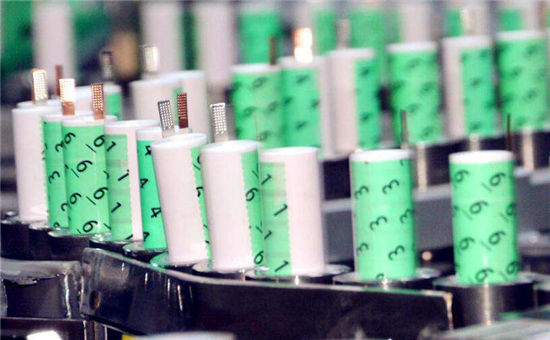18650 Lithium Battery Specifications-Definition and Medical Applications
Feb 19, 2020 Pageview:1423
A 18650 battery is rechargeable and a lithium-ion battery. The proper name with which it is referred to is "18650 cell". Generally, 18650 cells come with a voltage of 3.7 V and are usually rated at about 1800 mAh and 3500 mAh (pronounced mili-amp-hours). These batteries come in two basic types, viz: the protected and unprotected cells.
Most often, experts recommend the protected 18650 batteries. It doesn’t take too long for 18650 cells to complete charging, with the charge time being around 4 hours, on the average. However, this is only an average, since the charging time varies, depending on the amperage of the charger, as well as its voltage and the type of battery being charged.
The protected 18650 batteries usually have an inbuilt electronic circuit. This circuit is contained in the cell housing or battery casing. It basically protects the cell against heat or "over-discharge”, "overcharge" over currents and even short-circuiting. Using a protected 18650 battery is consequently safer than using an unprotected 18650 battery, which is less likely to suffer from overheating, explosion, or even goes on flames.
While the protected 18650 batteries are generally safer to use, the unprotected 18650 batteries are less expensive, but experts rarely recommend using these types of batteries. You may only use an unprotected 18650 battery if the charge and the load/draw are all monitored and controlled externally. It is not unusual for the protected 18650 batteries to have a "button top", but this may be different according to the battery manufacturer, so ensure to check the battery specification you’re getting to be sure.
What are a 18650 lithium battery specifications?
Cell Weight: 48g (approx.)
Nominal Capacity: 2,850 mAh
Minimum Discharge Voltage: 3V
Charging current: 0.5C
Nominal Voltage: 3.6V
Charging Time: 3 hours (approx.)
Charging Method: CC and CV
Cell Dimension: 18.4mm (dia) and 65mm (height)
Maximum Discharge current: 1C
Charging Voltage: 4.2V (maximum)
As you work with batteries, there are two very common terms you would always come across, and they are the mAh as well as the C rating. If a 18650 cell is rated 2850 mAh, this means that if 2.850 A is collected from the battery while being used, the battery will last 1 hour before completely draining. Similarly, if the device only consumes 0.285A of the battery, the energy in the battery will be enough to last 10 hours. Therefore, based on the Ah value, the duration your battery will last or the battery life can be calculated for each of its application concerning the power it consumes.
And then, for the C rating of the 18650 battery, it is mostly rated 1C, which means that the application or device in which the battery is being used can only consume a maximum of around 2.85A of the battery. The reason for this is because the Ah X c rating of a 18650 battery gives an insight to the maximum current which can be taken out of the battery. For example, for a battery with a C rating of 0.5 C, the application for which it is being used would only have a maximum of 1.42A (2.8/2) of the battery juice to consume.
What is the best 18650 lithium battery?
It is difficult to say which 18650 battery is best because the efficacy of a battery largely depends on the use and the application. The Nitecore NL1834R is widely considered to be the best 18650 when a travel battery is being considered, while the Sony VTC5A, on the other hand, is considered the best battery for vaping.
The Nitecore NL1834R (which although is not currently available on Amazon, is however available directly from the Nitecore website), is a 18650 cell. It is a 3.7V and 3400 mAh protected cell and also comes with an integrated micro USB charger. Although not the cheapest on the market, (it costs a tad more), you can charge it while you’re on the move and you do not have to come with a special or dedicated charger to charge it.
And then for vaping, the Sony VTC5A is also a very reliable battery and one of the most balanced 18650s on the market -this is an all-rounder. It is a 25amp battery with the capacity to last you the full day. The VTC5A is one of the best 18650 mechs if it is used following the amp limit.
Is 18650 lithium battery used in medical devices?
Because of the need for stability in medical devices, there is a need to use power not only from the wall socket but from various portable and mobile power sources as well. This is very important because some medical devices are mobile and some are fastened to the clothes or body of the patient. For this reason, it is important to get a reliable mobile power source -so 18650 batteries are used in medical devices.
Because medical devices are important to save lives and also to maintain and observe the steady health of patients, they require the high-performance 18650 batteries. This is to keep the medical devices working properly. As you already know with medical devices, a small electrical failure would spell disaster.
There are various types of medical devices for which 18650 batteries are used. Certain devices are used to provide preventive functions, such as the control or monitoring of disorders, which allow quick intervention and help avoid complications. Some other devices are made to be reactive, such that they can, for instance, detect if an elderly patient trips and falls, or in need of an emergency help, has gone out of a specific area, or requires a reminder to take their prescribed medication at the right time of day. But that’s not all, there are other portable or wearable devices that allow consumers irrespective of age to keep track of their health and fitness. This is very important if for instance one wants to lose weight, or achieve an exercise or fitness goal, or even sleep better.
There are quite several ways to connect a wearable or portable medical device to a patient. Some of these devices may be placed on the skin with the use of adhesives or they may be attached to the clothing of the person and the sensors then attached to the body. Some others may be worn like watches on the wrist (or on the chest).
Various medical devices that may use a 18650 battery include but are not limited to the following; ECG monitoring instrument, breath machine, ultrasonic, Ultrasound devices, electrocardiograph, Patient monitors, Drug delivery systems. etc.
- Prev Article: Lithium Battery Stock Symbol-Stock Trade Analysis
- Next Article: Li-ion Battery for Solar Power-Cycle Life and Battery
Leave Message
Hottest Categories
-
Hottest Industry News
-
Latest Industry News












